New April 2014 From Our 2001 Archives- A Conversation with Sylvia Earle
Video Links-
The Future of the Oceans with Sylvia Earle
How To Protect the Oceans- Sylvia Earle TedTalk
Sustainable Seas TedxSoCal
More-
National Geographic Explorers in Residence Bio
Academy of Achievement
Wikipedia
Huffington Post
The Future of the Oceans with Sylvia Earle
How To Protect the Oceans- Sylvia Earle TedTalk
Sustainable Seas TedxSoCal
More-
National Geographic Explorers in Residence Bio
Academy of Achievement
Wikipedia
Huffington Post
New March 2014 "How Industry and the Feds Suppressed Evidence That Plastics Wreak Havoc on our Hormones" Mother Jones/ March 2014
More: "Our Toxic Legacy" at Learning Sustainabilty
More: "Our Toxic Legacy" at Learning Sustainabilty
New February 2014 : Resource Links -Biodiversity and Climate Change-
Elizabeth Kolbert's new Book "The Sixth Extinction"
Elizabeth Kolbert's new Book "The Sixth Extinction"
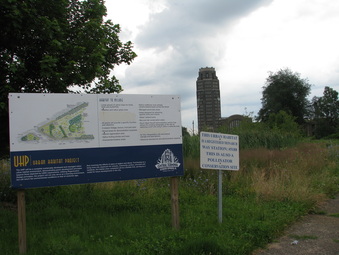
New February 2014
Biodiversity and The Sustainable City
URBAN NATURE: How to Foster Biodiversity in World's Cities
YALE environment 360 January 06, 2014
The Biological Basis of RESILIENT CITIES
The Ecologist January 25, 2014
NEW January 2014- From our 2001 Archives
Jay Burney Interviews David Suzuki, October 2001 at the
Learning Sustainability Conference in Buffalo N.Y.
Jay Burney Interviews David Suzuki, October 2001 at the
Learning Sustainability Conference in Buffalo N.Y.
The Learning Sustainability Campaign
Sustainable Solutions for Community Since 2001

Learning about sustainability focuses on understanding the relationships between the economy, culture and society, and the environment.
Many that study sustainability believe that the bottom line is the environment. The Learning Sustainability Campaign is focused on bringing awareness to this fundamental strategy, and helping to develop solutions for communities, organizations, businesses, and individuals.
Modern sustainability theory was born in a United Nations Report published in 1987.
Our Common Future, also known as the Brundtland Report the report issued by the United Nations World Commission on Environment and Development focused on the relationships between economy, society, and the environment. The report helped to contextualize both the relationships of environment and economy and the relationships between a global economy and local economies. The impacts of these contexts on culture and society have important consequences.
The report describes "sustainable development" as "development that meets the needs of the present without compromising the ability of future generations to meet their own needs."
The discussions that started with this report have laid the ground work for building a sustainable future that includes finding sustainable economic strategies that benefit more of humanity by stressing equity, helping to fight poverty and hunger, and promoting the real bottom line as the environment. Some consider "sustainable development" as an oxymoron because global economic strategies favor unregulated growth and free market fundamentalism which puts wealth concentration first, and considers environmental and social factors to be essential externalities. For more on externalities click here. Meanwhile we live in an increasingly unstable climate, a decline in the kind of biodiversity that supports human life, and cultural issues that promote poverty, despair, and war. There is an onrushing train targeting the human species. Learning sustainability may help to derail that train but the obstacles are severe.
Some scientists are pointing to an ongoing extinction episode that humanity faces. Can we learn our way to figure out how to survive on planet earth with a quality of life that will bring benefit and well-bing to future generations? What do you think? Click Here for more on the Holocene Extinction
Connect to the Learning Sustainability Campaign

|

GreenWatch is our facebook page, designed to help inform about sustainabiility issues. Almost daily links to articles, information and discussions about environment and sustainability. Click Here
|
New September 2013
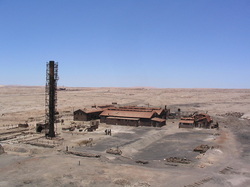
Guy Mcpherson at Nature Bats Last
Collapse: Exposing the Truth
McPherson updates on the state of nature, and how sudden biosphere collapse will effect political and economic systems and you and me.
Collapse: Exposing the Truth
McPherson updates on the state of nature, and how sudden biosphere collapse will effect political and economic systems and you and me.
New June 2013
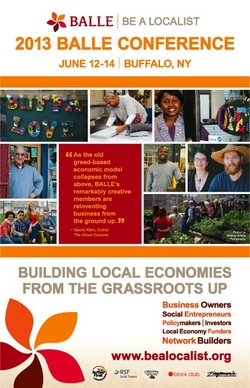
-BALLE (Business Alliance for Local Living Economies) Conference in Buffalo June 12-14, 2013
-Buffalo First
-GreenWatch Blog
Judy Wicks
Janine Benyus
Sandra Steingrabber
-Buffalo First
-GreenWatch Blog
Judy Wicks
Janine Benyus
Sandra Steingrabber
New May/June 2013- Jane Benyus Ted Talk- 12 Sustainable Design Ideas
New April 2013: It is Time To Criminalize Pollution
- A GreenWatch Essay by Jay Burney
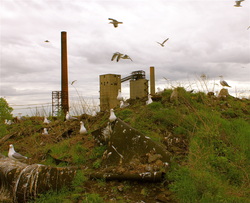
Earth Day 2013. Why are we celebrating?
-Friend Sandra Steingraber is in Chemung County jail, sentenced for and act of civil disobedience against the oil and gas industry that threatens to turn land and water in New Yorks Finger Lakes into an Armageddon that will visit future generations for what may be the rest of human time.
-Three years ago this week BP turned the Gulf of Mexico into one of the worst ecological disasters in the history of the planet. Because of the way the media reports this, many think that this disaster was nothing more than a “spill” and that BP has cleaned up the coast and brought economic prosperity to the citizens and economies dependent upon the resource that was once an ecologically vibrant heart of planet earth. Today, according to many independent science sources, the Gulf is a contaminated and unproductive ecosystem. Like so many other of earth’s bountiful resources, sacrificed to the political exigencies of economic profit for the few. More- Click Here
-Friend Sandra Steingraber is in Chemung County jail, sentenced for and act of civil disobedience against the oil and gas industry that threatens to turn land and water in New Yorks Finger Lakes into an Armageddon that will visit future generations for what may be the rest of human time.
-Three years ago this week BP turned the Gulf of Mexico into one of the worst ecological disasters in the history of the planet. Because of the way the media reports this, many think that this disaster was nothing more than a “spill” and that BP has cleaned up the coast and brought economic prosperity to the citizens and economies dependent upon the resource that was once an ecologically vibrant heart of planet earth. Today, according to many independent science sources, the Gulf is a contaminated and unproductive ecosystem. Like so many other of earth’s bountiful resources, sacrificed to the political exigencies of economic profit for the few. More- Click Here
NEW February 2013 -Vandana Shiva on the future of Agriculture, Food, and Seed.
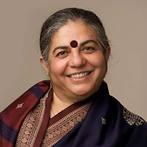
Vandana Shiva, scientist, author, feminist, ecologist, activist presents the Keynote Address at the 2009 Organicology Conference in Portland Oregon. CLICK HERE
NEW December 2012 -Guy McPherson -The Myth of Sustainability
Special Report
Biodiversity and Climate Change
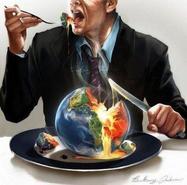
The Learning Sustainability Campaign and GreenWatch have teamed up with the Habiitat and Natural Resources Working Group of the Western New York Environmental Alliance, a Great Lakes based environmental organization, to publish the final draft of the Working Group's white paper.
Biodiversity and Climate Change-A Biocentric View
Last May, David Suzuki the eminent Canadian scientist, environmentalist, climate change activist, filmmaker and writer, quit his own organization’s board so that he could more freely speak out on issues that his organizations funders found too controversial or objectionable. His very first piece of writing after his resignation was called: “A Biocentric Viewpoint is Needed Now”. In it he wrote, “Environmentalism has failed. Over the past 50 years, environmentalists have succeeded in raising awareness, changing logging practices, stopping mega-dams and offshore drilling, and reducing greenhouse gas emissions. But we were so focused on battling opponents and seeking public support that we failed to realize these battles reflect fundamentally different ways of seeing our place in the world. And it is our deep underlying worldview that determines the way we treat our surroundings. We have not, as a species, come to grips with the explosive events that have changed our relationship with the planet.
Now the WNYEA Habitat and Natural Resources Working Group has issued a white paper that begins to address a biocentric point of view in the Great Lakes and beyond.
To read the entire report Click Here
|
Learning Sustainablity is about learning to live and act within our means. This is a difficult challenge in the modern world of globalism where truly every action is linked to economic, social, and environmental stablity.
Learning Sustainability is about recognizing critical relationships and the interconnectedness of knowledge and action. We live in a complicated and ever changing world. The Learning Sustainabilty Campaign and this website are designed to be a portal to information and action planning to help find the best solutions and pathways to a future that works. |
NEW October 25, 2012- Sustainable Food
|
The Learning Sustainability Campaign
Formed in 2002 as a direct response to the week long conference "Learning Sustainability, Acting Like a Region in a Globalized World", held in Buffalo New York in October of 2001. The event was sponsored by the Environment and Society Institute from the University of New York at Buffalo, Erie County, and The City of Buffalo. Guests included Jane Goodall, Sylvia Earle, David Suzuki, Paul Hawken, and the Rocky Mountain Institute. The event was managed by Jay Burney, who is the founder of The Learning Sustainability Campaign and manages this website.
Formed in 2002 as a direct response to the week long conference "Learning Sustainability, Acting Like a Region in a Globalized World", held in Buffalo New York in October of 2001. The event was sponsored by the Environment and Society Institute from the University of New York at Buffalo, Erie County, and The City of Buffalo. Guests included Jane Goodall, Sylvia Earle, David Suzuki, Paul Hawken, and the Rocky Mountain Institute. The event was managed by Jay Burney, who is the founder of The Learning Sustainability Campaign and manages this website.
GreenWatch

GreenWatch
is a Project of the Learning Sustainability Campaign.
The Project is designed to promote environmental and sustainability literacy for journalists, students, artists, bloggers, activists, and others that create or consume information about those concepts. Check out our work and and participate in regular updated discussions and the links to websites on GreenWatch.
Click the icon above to go to our Facebook Page
is a Project of the Learning Sustainability Campaign.
The Project is designed to promote environmental and sustainability literacy for journalists, students, artists, bloggers, activists, and others that create or consume information about those concepts. Check out our work and and participate in regular updated discussions and the links to websites on GreenWatch.
Click the icon above to go to our Facebook Page
NEW- GreenWatch Resources for Media Makers, Activists, and Educators

This page will take you to a growing section of our website which includes background resources on some of the most important sustainability issues of our times. Click Here.
Friends of Times Beach Nature Preserve
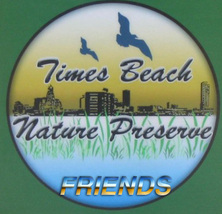
A Partner of The Learning Sustainability Campaign for over 10 years!
Click Here to go to the Website
Times Beach Nature Preserve is a rare gem. It is located in downtown Buffalo New York and on the shore of Lake Erie and the Buffalo River. Times Beach Nature Preserve is the gateway to the Niagara River Globally Significant Important Bird area, and his host to many migrating birds, spring, summer, fall and winter. It is also a pollinator conservation area hosting both resident and migrating pollinators including the Ruby-throated Hummingbird, many species of butterflies, dragonflies, and bees.
Click Here to go to the Website
Times Beach Nature Preserve is a rare gem. It is located in downtown Buffalo New York and on the shore of Lake Erie and the Buffalo River. Times Beach Nature Preserve is the gateway to the Niagara River Globally Significant Important Bird area, and his host to many migrating birds, spring, summer, fall and winter. It is also a pollinator conservation area hosting both resident and migrating pollinators including the Ruby-throated Hummingbird, many species of butterflies, dragonflies, and bees.
The Story of Change, or how you can REALLY make a difference!
FriendWatch -Click on the Icons to go to the websites
The Sustainable Man
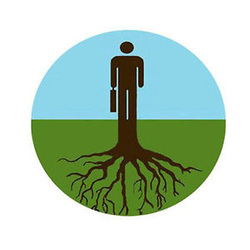
Videos, discussion blog, great stuff!
The Sustainable Man
Why "Sustainable Man" instead of Sustainable Human?
George Carlin and Vandana Shiva help give the answer Click Here
The Sustainable Man
Why "Sustainable Man" instead of Sustainable Human?
George Carlin and Vandana Shiva help give the answer Click Here
Our Breathing Planet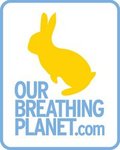
Check out this great website,Our Breathing Planet. Also on Facebook!
David Suzuki Foundation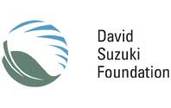
Critical resources and links from this Canadian Hero of the Planet
|
The Story of Stuff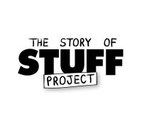
Annie Leonard brings an educational perspective to many of the critical sustainability issues of our day. See all of the important videos here.
Wangari Mathaai and the GreenBelt Movement
Nobel Peace Prize winner Wangari Mathaai's organization designed to restore forests in Africa and empower women worldwide. Rest In Peace Dr. Mathaai. 1940-2011
|
If you have material, links, and or ideas for this website and for more information email the publisher: [email protected]
-All Rights Reserved-
If you wish to republish any of the material contained on this website, please contact the publisher and make sure to source the material.
-All Rights Reserved-
If you wish to republish any of the material contained on this website, please contact the publisher and make sure to source the material.